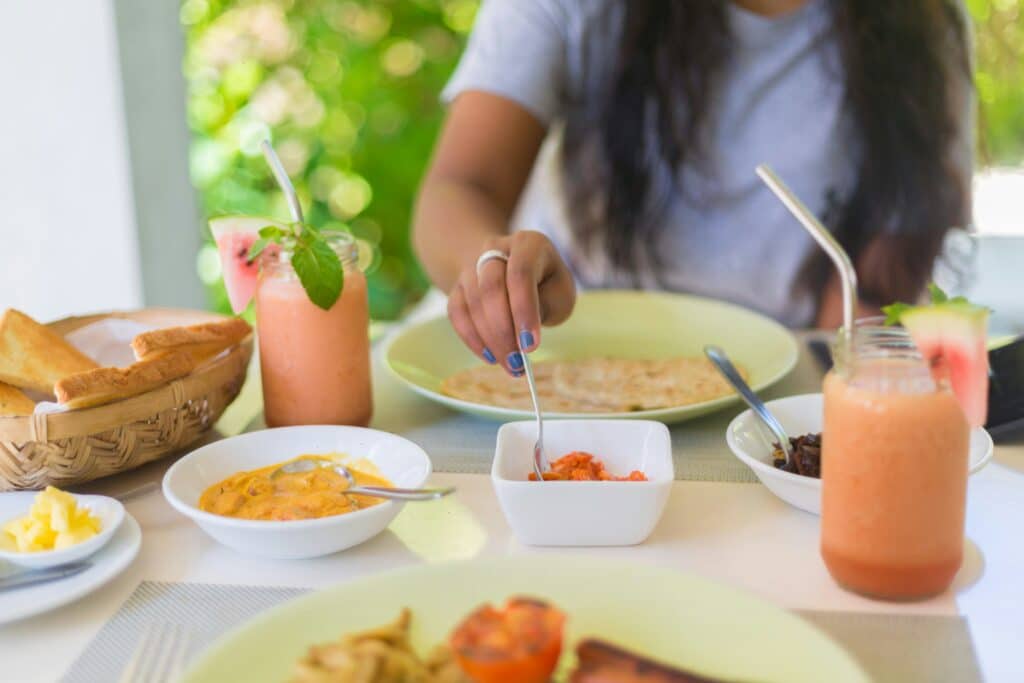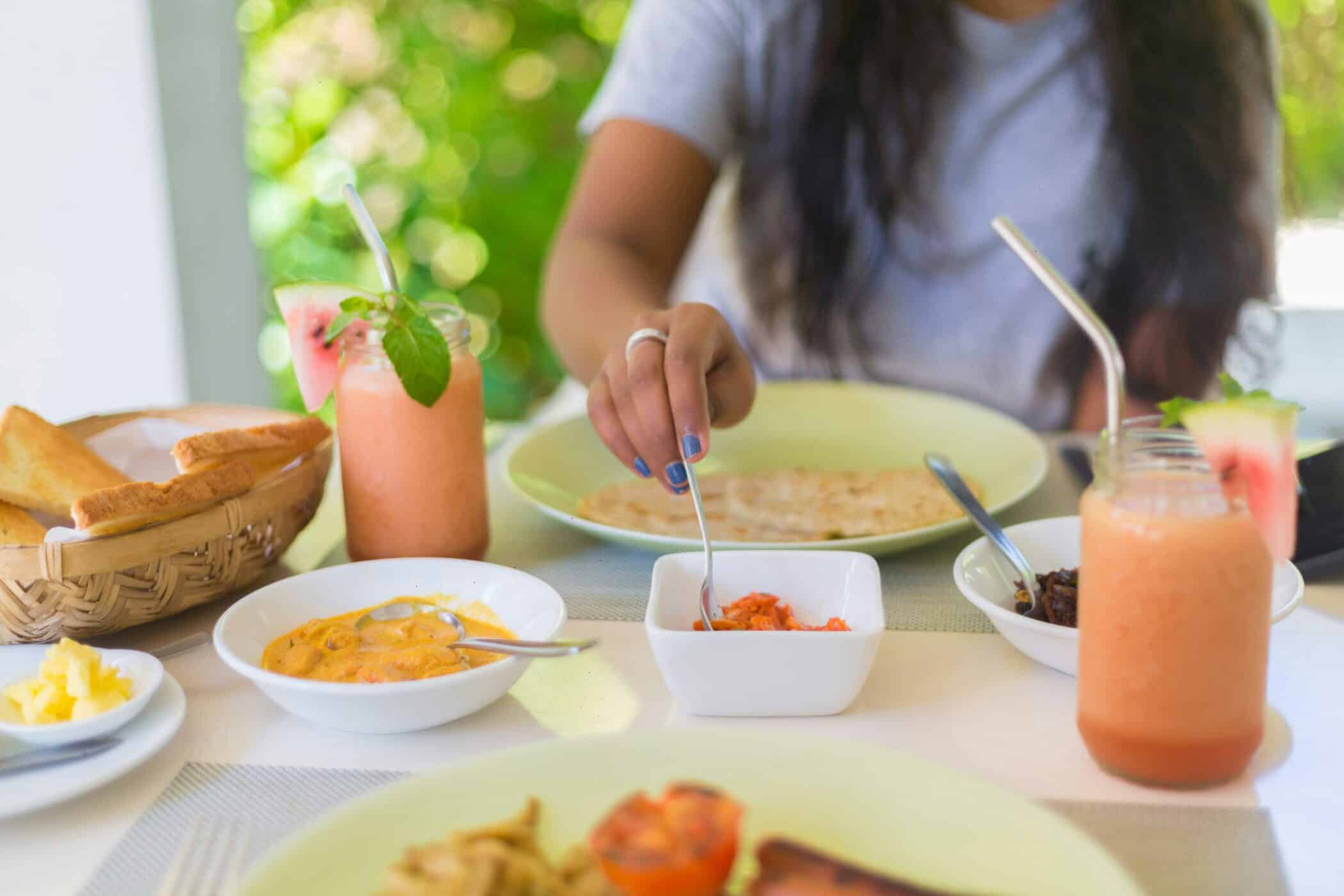
Today we’re gonna chat about something that’s been making waves in our sunny city – plant-based meals. There’s a lot of buzz going around, but also a ton of misinformation. So let’s dive in and bust some myths, shall we?
Table of Contents
Myth #1: Plant-Based Meals Lack Protein
Alright, let’s tackle this big one right off the bat. How many times have you heard someone say, “But where do you get your protein?” when talking about plant-based diets? Well, I’m here to tell ya, that’s a load of baloney (pun intended)!
- Protein powerhouses: Beans, lentils, chickpeas, tofu, tempeh, and seitan are all packed with protein.
- Grains and nuts: Quinoa, oats, almonds, and peanuts bring protein to the table too.
- Green giants: Even veggies like broccoli, spinach, and peas have protein!
According to the American Dietetic Association, “appropriately planned vegetarian diets, including total vegetarian or vegan diets, are healthful, nutritionally adequate, and may provide health benefits in the prevention and treatment of certain diseases.”
So next time someone asks you about protein, just smile and say, “From plants, my friend. From plants.” 😎
Myth #2: You Can’t Get Enough B12 on a Plant-Based Diet
Now, I gotta be real with you – this one’s a bit tricky, but it’s not the whole story. Many folks think B12 is exclusively found in animal products, but here’s the kicker: B12 isn’t inherently produced by animals either!
Let’s break this down:
- Bacterial production: B12 is actually produced by certain bacteria. These bacteria are found in soil, water, and the digestive tracts of animals.
- Animal absorption: Animals, including humans, don’t make their own B12. Instead, they absorb B12 produced by bacteria in their gut or by eating foods containing B12. Some animals like pigs and chickens are often given B12 supplements in their feed.
For us plant-based eaters in Miami, this means:
- Fortified foods: Many plant-based products like non-dairy milks, cereals, and nutritional yeast are fortified with B12.
- Supplements: Taking a B12 supplement is a direct way to get what those bacteria produce.
- Regular check-ups: It’s smart to get your B12 levels checked regularly, no matter your diet.
Remember, Miami, whether you’re chowing down on croquetas or a quinoa bowl, the B12 in your food ultimately comes from bacteria or supplements. It’s all about making sure you’re getting enough, no matter how you choose to eat! 🥑
Myth #3: Plant-Based Diets Are Always Healthy 🍔
Here’s where we need to keep it 100, Miami. Just because something’s plant-based doesn’t automatically make it healthy. I mean, french fries are technically plant-based, right?
- Processed foods: There are plenty of processed vegan foods out there that aren’t exactly health food.
- Balance is key: A healthy plant-based diet should include a variety of whole foods.
- Watch the portions: You can still overeat on plants!
The key is to focus on whole, minimally processed plant foods. Think colorful veggies, whole grains, legumes, nuts, and seeds. It’s all about that rainbow on your plate!
Myth #4: Plant-Based Meals Are Boring and Tasteless
Oh boy, if I had a dollar for every time I heard this one, I could buy a lifetime supply of avocados! Trust me, plant-based meals can be a flavor explosion in your mouth.
- Global cuisine: From spicy Indian curries to savory Middle Eastern falafel, plant-based eating is a world tour for your taste buds.
- Herbs and spices: These are your best friends for adding flavor without adding calories.
- Get creative: Ever tried jackfruit “pulled pork” or cauliflower “wings”? Mind-blowing!
And let’s be real – we’re in Miami! We’ve got access to some of the most amazing tropical fruits and veggies. Your plant-based meals can be as exciting as a night out on South Beach!
Myth #5: You Need to Go 100% Plant-Based or Not at All
This myth right here? It’s probably stopped more people from trying plant-based meals than anything else. But here’s the truth – it’s not all or nothing!
- Start small: Try Meatless Mondays or swapping one meal a day for a plant-based option.
- Flexitarian approach: Some people choose to eat mostly plant-based with occasional animal products.
- Progress, not perfection: Any increase in plant-based meals is a step in the right direction!
The American Heart Association supports eating more plant-based meals, stating that “eating more plant-based foods and fewer animal foods may lower your risk of heart disease and other health risks.” They don’t say you have to go 100% plant-based – just that eating more plants is good for you!
The Reality of Plant-Based Eating in Miami
Now that we’ve busted these myths, let’s talk about making plant-based eating work in our vibrant city. Miami’s got some unique challenges, but also some awesome advantages:
- Hot climate: Our year-round heat means we’ve got access to fresh, local produce all the time.
- Cultural diversity: From Cuban black beans to Haitian pikliz, we’ve got a wealth of plant-based dishes in our culinary heritage.
- Beach body motivation: Let’s face it, when you’re hitting the beach year-round, you want to feel your best!
But we also know life in Miami can get hectic. Between work, beach time, and fighting traffic on the 95, who’s got time to prep elaborate plant-based meals?
Your Plant-Based Pit Crew 🏎️
That’s where we at Jet Fuel Meals step up to the plate. We’re all about making healthy, plant-based eating as easy as a breeze off Biscayne Bay.
We deliver fresh, portion-controlled plant-based meals right to your door three times a week. No need to stress about shopping, prepping, or balancing your nutrients – we’ve got it all covered. Our meals are designed by nutrition experts to ensure you’re getting all the good stuff your body needs.
Remember, it’s not about being perfect – it’s about making progress. And with Jet Fuel Meals, that progress just got a whole lot tastier! Let’s fuel up and feel great, Miami style! 🌿🌞

